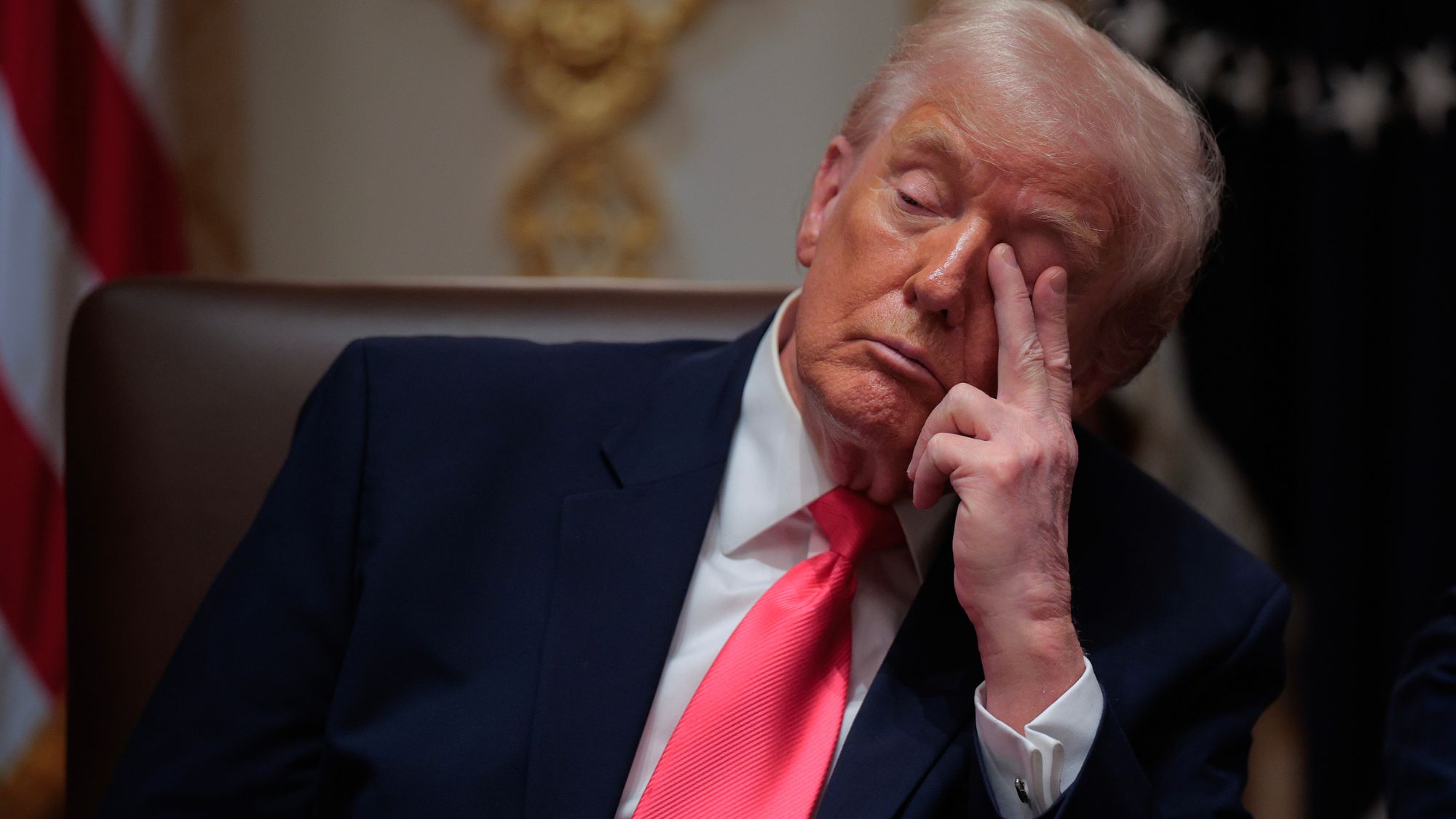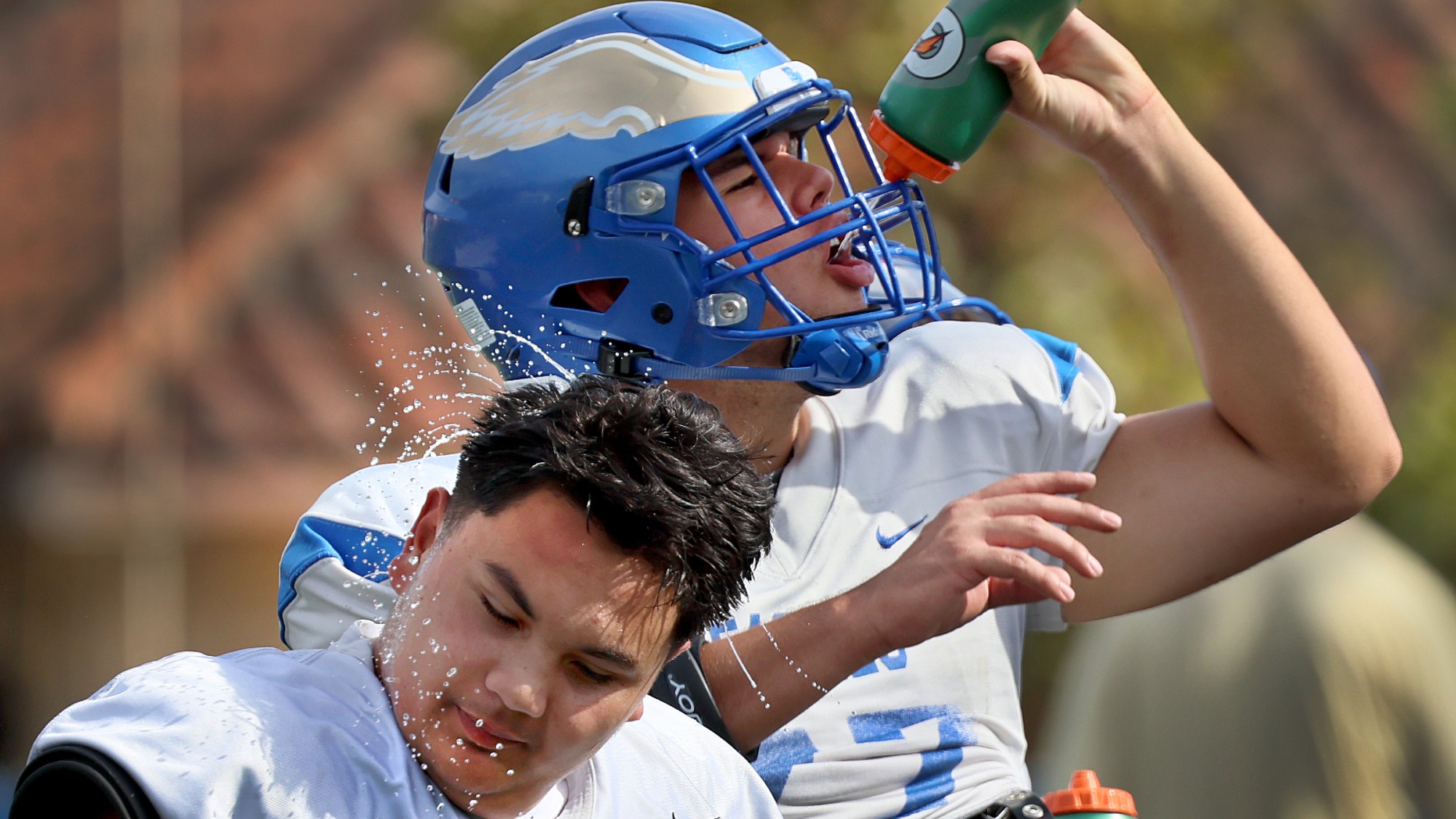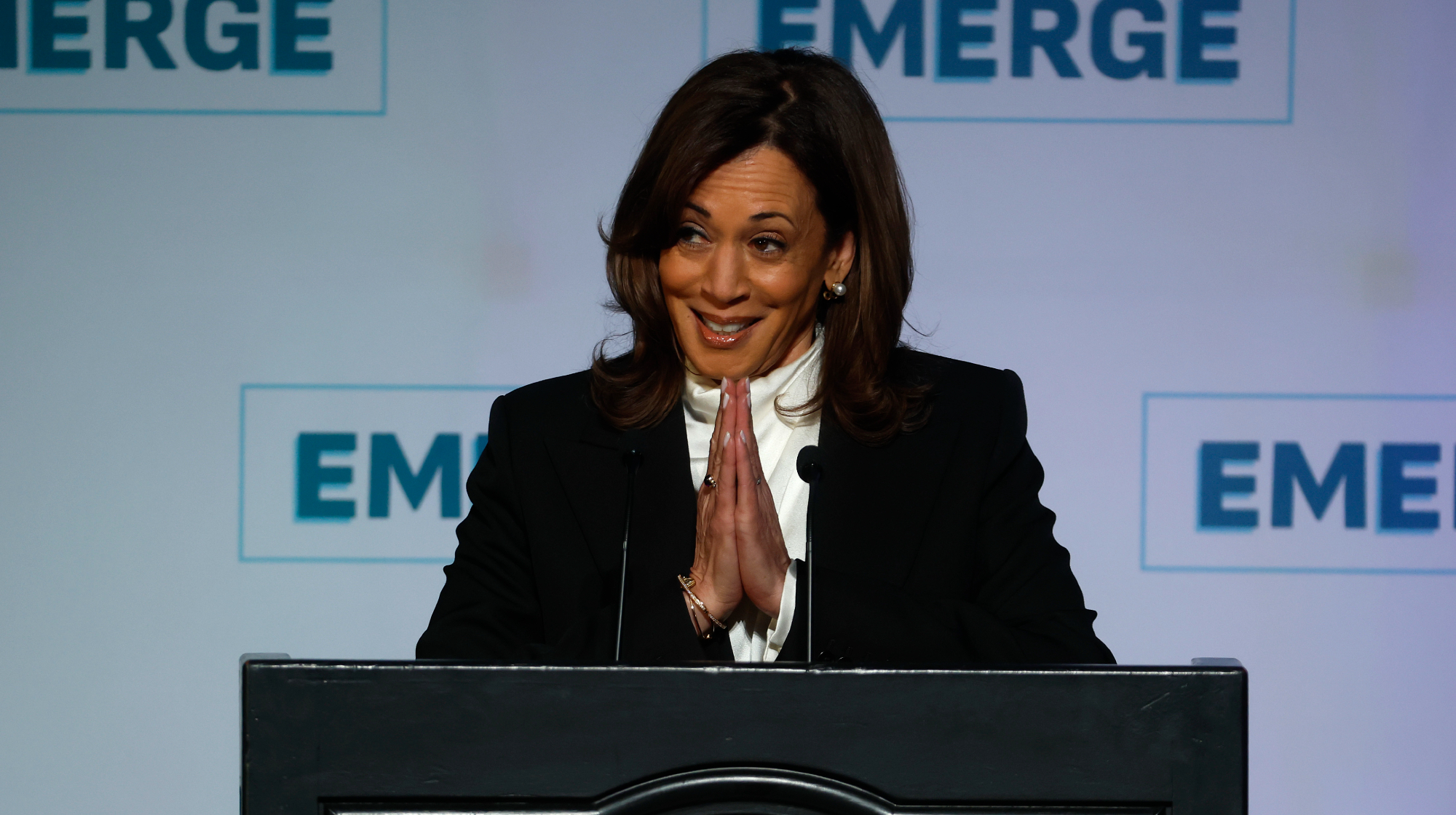Kamala's curious collapse
Is the California senator's 2020 campaign down for the count?


A free daily email with the biggest news stories of the day – and the best features from TheWeek.com
You are now subscribed
Your newsletter sign-up was successful
What in the world happened to Kamala Harris? The first-term senator from California appeared to have a number of advantages over other Democrats vying for the party's presidential nomination in 2020. She was one of the presumed main challengers to Joe Biden's nostalgia campaign, and her state's new position near the top of the primary calendar seemed designed to lift her into the top tier of candidates even in a crowded field.
Instead, as the third official presidential debate approaches, Harris has sunk into near oblivion. Even at her peak, Harris never consistently polled higher than 15 percent. In the last two months, her polling support has cratered to the point where Harris has hit double digits only once in the past month. Harris now barely tracks above Pete Buttigieg in the RealClearPolitics aggregate polling average, almost 10 points behind third-place runner Bernie Sanders.
Harris' collapse cuts against the expectations of many observers before the start of the year. No other candidate checked as many boxes on the left's identity-politics wish list, while Harris also had a law-and-order background as the Golden State's attorney general. Not quite 55 years old, Harris has a reasonable claim at representing a younger generation of voters and, thanks to a relatively short career on the national stage, she was presumed to be relatively unencumbered of past policy stands or political embarrassments.
The Week
Escape your echo chamber. Get the facts behind the news, plus analysis from multiple perspectives.

Sign up for The Week's Free Newsletters
From our morning news briefing to a weekly Good News Newsletter, get the best of The Week delivered directly to your inbox.
From our morning news briefing to a weekly Good News Newsletter, get the best of The Week delivered directly to your inbox.
Politico wrote Harris' 2020 obituary along with most of the rest of the field earlier this week. "Only three candidates are polling above single digits," reported David Siders and Elena Schneider, "Joe Biden, Elizabeth Warren, and Bernie Sanders." Harris, according to Politico, has been relegated to the "everyone else" category.
That represents a stunning turnaround from a little over two months ago, when Harris saw her numbers shoot skyward after taking on Biden in the first Democratic presidential debate. She scolded Biden for his opposition to federally mandated busing in the early 1970s, punctuated by her perceived authenticity as a beneficiary of the policy. Unfortunately, that "sugar high" of response to that authentic voice, as Bloomberg's Sahil Kapur puts it, sowed the seeds of Harris' eventual authenticity collapse, which led to the collapse in her popular support.
In the days after that debate, Harris began shifting her own position on busing until she ended up where Biden was and is: in favor of using it as an option for school districts but not in favor of federal busing orders for desegregation. At the same time, Harris also continued equivocating on her support for Medicare-for-All — not the only Democratic candidate to do so — and the role of private insurers in the health-care system. Despite sponsoring Sanders' Medicare-for-All bill in the Senate, Harris declared in mid-August that she had "not been comfortable with Bernie's plan." Harris' strange decision to skip a softball CNN forum on climate change after hyping the threat also suggests that Harris is unprepared to discuss the topic even under the friendliest conditions. Put all that together and Harris looks less like an authentic leader and more like every other politician in Washington.
That failure, however, points to why it might be too early to count Harris out. If authenticity and identity are the top values in this primary season for Democratic voters, then all three of the septuagenarian top-tier candidates have their own problems. The trick for Harris is to fill those gaps rather than just point them out.
A free daily email with the biggest news stories of the day – and the best features from TheWeek.com
Starting with the front-runner, Biden may be the candidate who has the best emotional connection to voters. But otherwise, he's the most out of step with the populist impulse on the left and is lacking appeal in both identity and authenticity. The former VP has been part of the Washington scene for nearly a half-century and has rarely met a position he couldn't change. He's the quintessential "old white man" that grassroots activists claim they want to exclude. Bernie Sanders has the same identity issue, but he has credit for political consistency — although it's easy to remain consistent from the socialist fringe.
Elizabeth Warren presents a more formidable challenge, in large part because Warren has prepared herself on the policy front. Warren has avoided looking lost on issues by rolling out detailed proposals for health care and other social policies. Warren has even made light of her studiousness, casting herself as the Candidate With A Plan. Warren has more of an issue on identity and authenticity, however, thanks to her repeated defenses of earlier claims to be of Native American descent, including a very ill-advised DNA test that flopped.
As the the third debate approaches, Harris has one last opportunity to recover and compete. First, she needs to decide where she stands on policy and stick with it; it may not be necessary to out-wonk Warren, but the embarrassing vacillations have to end. Second, frontal attacks on well-liked competitors don't work in the long run, so Harris has to find ways to positively cast herself as the one candidate who can best fulfill the Democrats' demands for both identity and authenticity. Finally, Harris needs to demonstrate youthful energy rather than hostility to underscore her ability to connect with the millennial future without discarding entirely the Baby Boomer past.
Is it too late? Harris' national polling shows an arc into the statistical noise region heading into the final quarter before the primaries, but state polling hints that a path still exists. Harris still scores in double digits in early states such as Iowa, New Hampshire, and South Carolina, but she might not get many delegates thanks to her third- or fourth-place position in those states. California, however, will go to the polls on the first Super Tuesday — and Harris continues to run in second place in her native state, just behind Biden. Her delegate haul from the Golden State could put her back in contention and provide voters in later states with an alternative to Biden as others drop out.
It's still a long shot, of course. Harris will have to improve dramatically as a candidate over the next week and perform yet another campaign reset. Considering how poorly the Democrats' three front-runners match up with the grassroots' professed needs, however, it's too early to say that Harris has talked her way out of the nomination.
Edward Morrissey has been writing about politics since 2003 in his blog, Captain's Quarters, and now writes for HotAir.com. His columns have appeared in the Washington Post, the New York Post, The New York Sun, the Washington Times, and other newspapers. Morrissey has a daily Internet talk show on politics and culture at Hot Air. Since 2004, Morrissey has had a weekend talk radio show in the Minneapolis/St. Paul area and often fills in as a guest on Salem Radio Network's nationally-syndicated shows. He lives in the Twin Cities area of Minnesota with his wife, son and daughter-in-law, and his two granddaughters. Morrissey's new book, GOING RED, will be published by Crown Forum on April 5, 2016.
-
 The ‘ravenous’ demand for Cornish minerals
The ‘ravenous’ demand for Cornish mineralsUnder the Radar Growing need for critical minerals to power tech has intensified ‘appetite’ for lithium, which could be a ‘huge boon’ for local economy
-
 Why are election experts taking Trump’s midterm threats seriously?
Why are election experts taking Trump’s midterm threats seriously?IN THE SPOTLIGHT As the president muses about polling place deployments and a centralized electoral system aimed at one-party control, lawmakers are taking this administration at its word
-
 ‘Restaurateurs have become millionaires’
‘Restaurateurs have become millionaires’Instant Opinion Opinion, comment and editorials of the day
-
 The billionaires’ wealth tax: a catastrophe for California?
The billionaires’ wealth tax: a catastrophe for California?Talking Point Peter Thiel and Larry Page preparing to change state residency
-
 Bari Weiss’ ‘60 Minutes’ scandal is about more than one report
Bari Weiss’ ‘60 Minutes’ scandal is about more than one reportIN THE SPOTLIGHT By blocking an approved segment on a controversial prison holding US deportees in El Salvador, the editor-in-chief of CBS News has become the main story
-
 Trump’s poll collapse: can he stop the slide?
Trump’s poll collapse: can he stop the slide?Talking Point President who promised to ease cost-of-living has found that US economic woes can’t be solved ‘via executive fiat’
-
 Has Zohran Mamdani shown the Democrats how to win again?
Has Zohran Mamdani shown the Democrats how to win again?Today’s Big Question New York City mayoral election touted as victory for left-wing populists but moderate centrist wins elsewhere present more complex path for Democratic Party
-
 Millions turn out for anti-Trump ‘No Kings’ rallies
Millions turn out for anti-Trump ‘No Kings’ ralliesSpeed Read An estimated 7 million people participated, 2 million more than at the first ‘No Kings’ protest in June
-
 Democrats: Harris and Biden’s blame game
Democrats: Harris and Biden’s blame gameFeature Kamala Harris’ new memoir reveals frustrations over Biden’s reelection bid and her time as vice president
-
 ‘We must empower young athletes with the knowledge to stay safe’
‘We must empower young athletes with the knowledge to stay safe’Instant Opinion Opinion, comment and editorials of the day
-
 Harris rules out run for California governor
Harris rules out run for California governorSpeed Read The 2024 Democratic presidential nominee ended months of speculation about her plans for the contest
